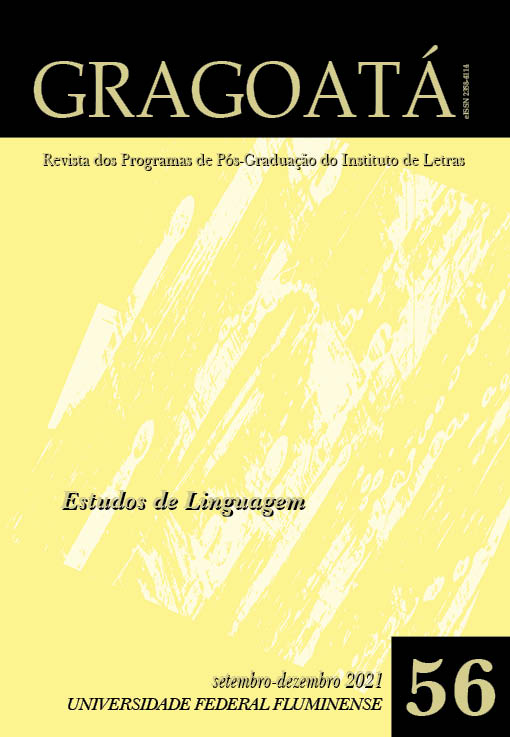Linguagem e arte em contextos interculturais: o potencial epistemológico do Rap para a educação linguística de docentes indígenas em formação superior na Universidade Federal de Goiás
DOI:
https://doi.org/10.22409/gragoata.v26i56.48918Palavras-chave:
Educação intercultural. Educação linguística. Rap. Epistemologia fronteiriça.Resumo
As reflexões propostas neste trabalho situam-se no âmbito das atividades desenvolvidas no curso de Licenciatura em Educação Intercultural da Universidade Federal de Goiás, cujo objetivo principal é formar docentes indígenas em nível superior para a atuação nas escolas de suas comunidades. Fundada nos princípios da interculturalidade crítica (TUBINO, 2004; WALSH, 2009a; 2018), da transdisciplinaridade (CASTRO-GOMÉZ, 2007; MAX-NEEF, 2004; SILVA; HERBETTA, 2018) e da decolonialidade (MIGNOLO, 2010; 2011; WALSH, 2018), a proposta pedagógica do curso busca fomentar e implementar a emergência de bases epistemológicas que foram/são descartadas pela Modernidade/Colonialidade e potencializá-las como fundamentos para práticas pedagógicas mais sensíveis às formas de existências indígenas na contemporaneidade (UFG, 2020). Neste contexto, o presente trabalho tem como principal objetivo apresentar reflexões de cunho etnográfico em sala de aula (BLOOME; GREEN, 2015; PENTEADO, 2010a; 2010b) que se originam numa experiência pedagógica de educação linguística desenvolvida no referido curso a partir da abordagem da cultura Hip Hop. Assumida como um lócus epistemológico fronteiriço fundado em histórias e corpos marginalizados pela Colonialidade, cujo poder de comunicação atravessa fronteiras e cria redes de coalizão contestatória, essa cultura possibilita que grupos subalternizados se apropriem da enunciação historicamente negada e desafiem a hegemonia de projetos globais desde suas histórias locais, marcadas pela violência e pela exclusão. A partir desta experiência pedagógica situada, é possível reconhecer o alto grau de adesão de docentes indígenas em formação superior ao potencial contestatório antirracista do Rap que se manifesta em diferentes níveis, incluindo as temáticas das composições que denunciam as variadas formas de violência a que estão sujeitos os povos indígenas na contemporaneidade, assim como o enfrentamento de ideologias modernas de linguagem expresso no uso de recursos das línguas indígenas nas composições.
Downloads
Downloads
Publicado
Edição
Seção
Licença
AUTORIZAÇÃO
Autores que publicam em Gragoatá concordam com os seguintes termos:
Os autores mantêm os direitos e cedem à revista o direito à primeira publicação, simultaneamente submetido a uma licença Creative Commons Atribuição 4.0 Internacional (CC BY 4.0), que permite o compartilhamento por terceiros com a devida menção ao autor e à primeira publicação pela Gragoatá.
Os autores podem entrar em acordos contratuais adicionais e separados para a distribuição não exclusiva da versão publicada da obra (por exemplo, postá-la em um repositório institucional ou publicá-la em um livro), com o reconhecimento de sua publicação inicial na Gragoatá.
A Gragoatá utiliza uma Licença Creative Commons - Atribuição CC BY 4.0 Internacional.











